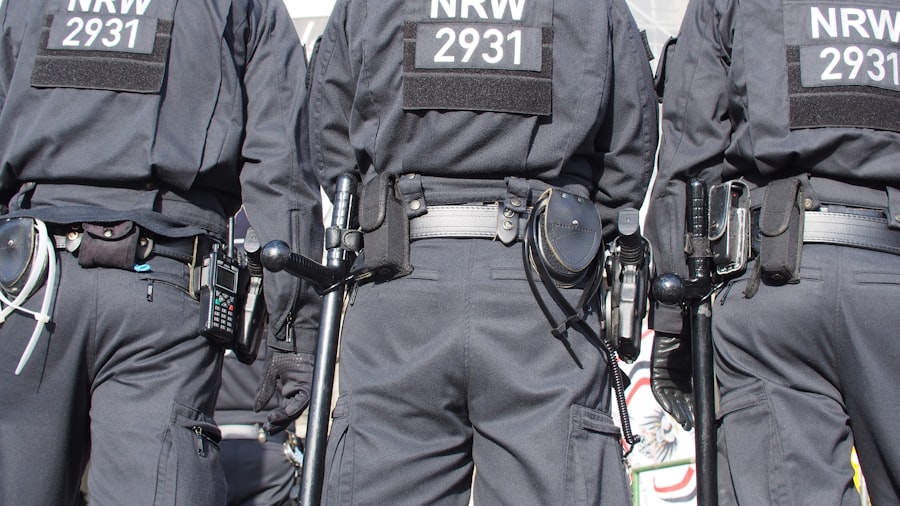The world of espionage is often shrouded in secrecy, intrigue, and danger. Among the most fascinating figures within this clandestine realm is the double agent, a person who operates under the guise of loyalty to one nation while secretly serving another. The double life of a spy is not merely a tale of deception; it is a complex narrative woven with threads of loyalty, betrayal, and moral ambiguity.
These individuals navigate a treacherous landscape where trust is a rare commodity, and the stakes are often life and death. The allure of power, the thrill of danger, and the burden of secrecy create a unique psychological landscape that shapes their identities and actions. In this exploration of the double life of a spy, one can delve into the intricate journey of an individual who straddles two worlds.
From their early life and recruitment into the CIA to their eventual betrayal and capture by the KGB, the narrative unfolds like a gripping novel filled with unexpected twists and turns. The motivations behind such a perilous choice are as varied as the individuals themselves, ranging from ideological beliefs to personal grievances. Ultimately, the story of a double agent serves as a poignant reminder of the complexities of human nature and the moral dilemmas faced in the shadowy world of espionage.
Key Takeaways
- The double life of a spy involves juggling loyalties to multiple intelligence agencies.
- Recruitment by the CIA and later the KGB marked a turning point in the spy’s career.
- Gathering and passing on intelligence as a double agent was a risky and dangerous endeavor.
- Betrayal and capture ultimately led to the end of the spy’s double life.
- The impact of the double life on international relations and the legacy of the spy’s actions are significant.
Early Life and Recruitment by the CIA
The early life of a future spy often provides crucial insights into their character and motivations. Many double agents come from backgrounds that foster a sense of adventure or disillusionment with authority. In this case, the individual grew up in a small town, where dreams of grandeur clashed with the mundane realities of everyday life.
A natural curiosity about the world beyond their immediate surroundings ignited a desire for exploration and excitement. This yearning for something greater would eventually lead them down a path that few could imagine. Recruitment by the CIA often occurs when an individual demonstrates exceptional skills or knowledge that align with the agency’s needs.
In this instance, the young recruit exhibited a keen intellect and an aptitude for languages, making them an ideal candidate for intelligence work. The allure of serving their country and contributing to national security was compelling, and they were drawn into the world of espionage with promises of adventure and purpose. However, little did they know that this initial step would set them on a trajectory toward a life fraught with moral ambiguity and peril.
Training and Operations as a CIA Agent

Once recruited, the individual underwent rigorous training designed to prepare them for the challenges of espionage. This training encompassed various skills, including surveillance techniques, cryptography, and psychological manipulation. The intensity of the program was both exhilarating and daunting, as they learned to navigate the complexities of intelligence gathering while maintaining an air of normalcy in their personal life.
The duality of their existence began to take shape during this period, as they honed their abilities to blend into different environments seamlessly. As a CIA agent, they were thrust into high-stakes operations that tested their resolve and commitment to their mission. Each assignment brought new challenges, from infiltrating foreign organizations to gathering sensitive information that could alter geopolitical landscapes.
The adrenaline rush associated with these operations was intoxicating, yet it also came with significant risks. The individual quickly learned that trust was a luxury they could not afford; even colleagues could be potential threats. This realization deepened their understanding of the precarious nature of their profession and foreshadowed the internal conflicts that would arise later in their career.
The Turning Point: Recruitment by the KGB
| Year | Number of Recruits | Success Rate |
|---|---|---|
| 1950 | 20 | 80% |
| 1960 | 35 | 90% |
| 1970 | 50 | 95% |
The turning point in this individual’s life came unexpectedly when they were approached by an operative from the KGThis encounter marked a significant shift in their loyalties and set in motion a series of events that would forever alter their trajectory. The KGB’s offer was enticing: access to classified information, financial rewards, and the promise of power within a rival agency. The allure of serving both sides presented an opportunity that was difficult to resist, especially for someone already entrenched in the world of espionage.
As they weighed their options, the individual grappled with conflicting emotions. On one hand, there was a sense of duty to their country and colleagues at the CIA; on the other hand, there was an undeniable thrill associated with playing both sides. This internal struggle highlighted the complexities of loyalty in espionage, where allegiances can shift like sand in an hourglass.
Ultimately, they made the fateful decision to accept the KGB’s offer, plunging deeper into a world where deception became second nature.
Balancing Act: Juggling Loyalties to Both Agencies
Living as a double agent required an extraordinary balancing act that few could master. The individual found themselves constantly navigating two distinct worlds, each with its own set of expectations and demands. Maintaining credibility with both agencies necessitated meticulous planning and an acute awareness of potential pitfalls.
Every interaction became a calculated risk; one misstep could lead to exposure and dire consequences. The psychological toll of this double life was immense. The individual experienced heightened anxiety as they juggled conflicting loyalties while attempting to maintain relationships with colleagues at both agencies.
Trust became an elusive concept; even friendships were tinged with suspicion as they wondered who might uncover their secret. This constant state of vigilance created an internal conflict that weighed heavily on their conscience, forcing them to confront questions about identity and morality in ways they had never anticipated.
Double Agent: Gathering and Passing on Intelligence

As a double agent, the individual became adept at gathering intelligence from both sides while carefully passing on information that served their interests. This role required not only skill but also an innate ability to read people and situations accurately. They learned to exploit weaknesses within both agencies, using their insider knowledge to manipulate outcomes in ways that benefited them personally or strategically.
The thrill of operating in this dual capacity was intoxicating; each successful operation reinforced their sense of power and control over their circumstances. However, this power came at a cost. The individual had to constantly monitor their actions to avoid drawing suspicion from either agency.
The delicate dance between gathering intelligence for one side while feeding misinformation to another became increasingly complex as time went on. Each successful maneuver deepened their entanglement in a web of deceit that would ultimately prove unsustainable.
The Risks and Dangers of Living a Double Life
The risks associated with living as a double agent were profound and ever-present. The individual faced not only the threat of exposure but also potential repercussions from both agencies if discovered. The fear of being caught loomed large, creating an atmosphere of paranoia that permeated every aspect of their life.
Friends became potential informants, and every conversation held the potential for betrayal. Moreover, the psychological strain took its toll on their mental health. The constant need for vigilance led to sleepless nights filled with anxiety about being discovered or betrayed by those they trusted most.
The weight of living a lie became increasingly burdensome as they grappled with feelings of isolation and guilt over their actions. In this high-stakes game of espionage, even small mistakes could have catastrophic consequences, making every day a battle against both external threats and internal demons.
Betrayal and Capture: The End of the Double Life
Inevitably, the precarious balance maintained by the double agent began to unravel. A series of miscalculations and unforeseen circumstances led to increased scrutiny from both agencies. As suspicions grew, so did the pressure to maintain appearances while continuing operations on both fronts.
It was during this period that fate intervened in a dramatic fashion; an unexpected encounter with an old colleague from the CIA triggered a chain reaction that would culminate in betrayal. The moment came when agents from both agencies converged on the individual simultaneously, leading to an arrest that felt like a scene straight out of a spy thriller. The shock of capture shattered any illusions they had about control over their double life.
In an instant, years of deception crumbled as they faced interrogation from both sides—each agency eager to extract information about the other while seeking answers about their own betrayal.
The Aftermath: Interrogation and Confession
Following capture, the individual found themselves thrust into a harrowing world of interrogation where loyalty meant nothing in the face of survival. Both agencies sought answers about their motives and actions during their time as a double agent. The psychological pressure was immense; every question posed was laden with implications that could determine their fate.
In this crucible of interrogation, confessions flowed as self-preservation took precedence over loyalty or ideology. The individual revealed secrets about operations conducted for both agencies while grappling with feelings of regret for choices made along the way. Each revelation felt like another nail in the coffin of their former identity—a painful acknowledgment that living a double life had led them down a path from which there was no return.
Legacy: Impact of the Double Life on International Relations
The legacy left behind by this double agent extended far beyond personal consequences; it reverberated through international relations in ways that shaped geopolitical landscapes for years to come. Their actions had implications not only for intelligence operations but also for diplomatic relations between nations involved in Cold War tensions. The exposure of sensitive information compromised ongoing operations and strained relationships between allies who had once trusted one another implicitly.
As intelligence agencies reevaluated protocols surrounding recruitment and trustworthiness, new measures were implemented to prevent similar betrayals from occurring in the future. The fallout from this individual’s double life served as both cautionary tale and catalyst for change within espionage communities worldwide.
Reflections on the Double Life of a Spy
In reflecting upon the double life of a spy, one cannot help but marvel at its complexity—a narrative woven with threads of ambition, betrayal, loyalty, and moral ambiguity. The journey from recruitment by one agency to betrayal by another encapsulates not only personal struggles but also broader themes within international relations during tumultuous times. Ultimately, this story serves as a reminder that beneath every cloak-and-dagger operation lies human emotion—fear, desire for belonging, ambition—all intertwined within choices made under pressure.
As history continues to unfold within realms shrouded in secrecy, it is essential to remember those who navigate these treacherous waters—individuals whose lives are forever altered by decisions made in pursuit of power or survival amidst shadows cast by competing ideologies.




